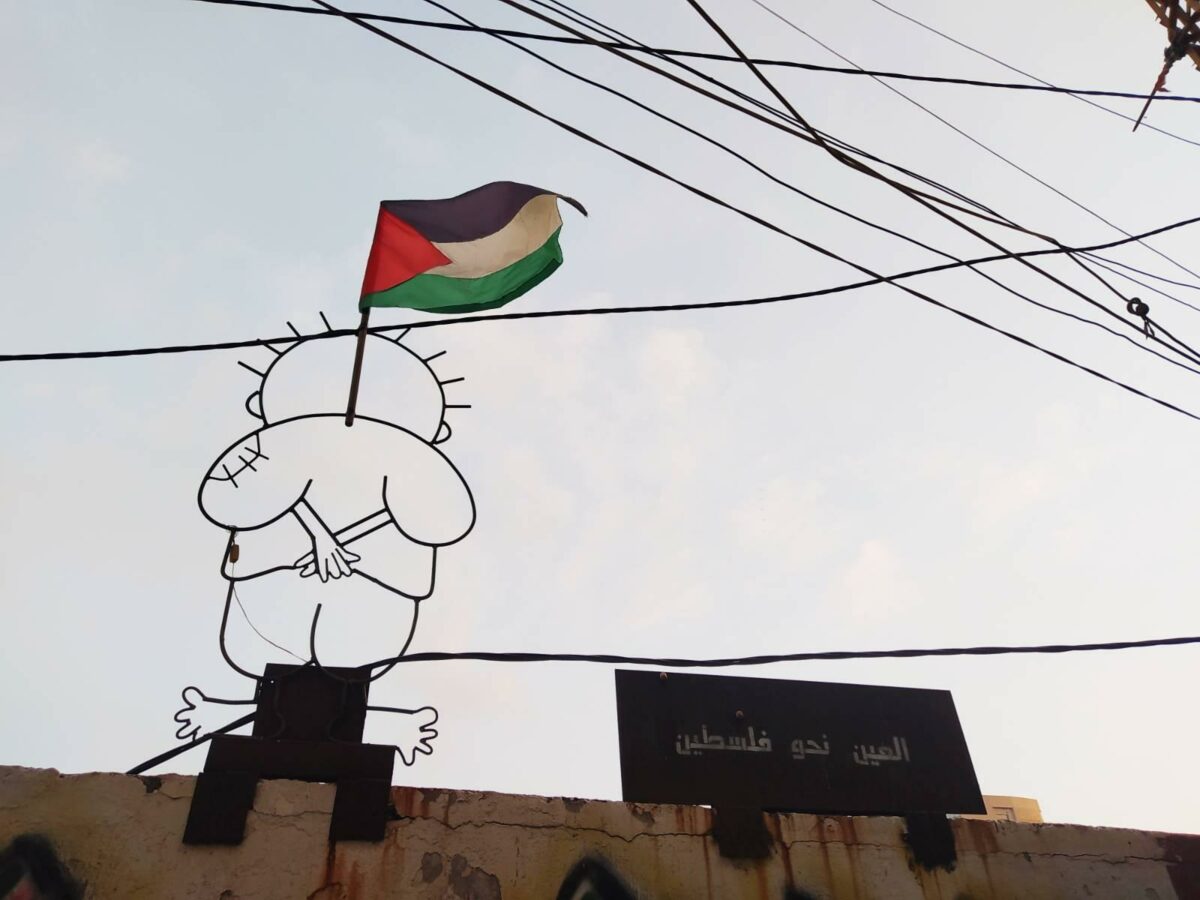On 23 July, the second day of the Samidoun international delegation to Lebanon, the delegates participated in several political meetings and cultural activities. Delegates began their activities of the day by meeting in Beirut with Jamal Wakim, a professor at the Lebanese University. Jamal Wakim is also a leading member in the People’s Movement of Lebanon (Harakat al-Shaab), a political party formed in 2000, with a progressive and anti-imperialist agenda.

The delegation discussed the situation for the Palestinian Left and its political organizations, and how we can collectively move forward to advance Palestinian liberation. Also on the agenda were differing views on Arab nationalism and visions of the path of national liberation for the region as a whole. The delegation also discussed the relationships of various anti-colonial movements around the world and their relationships to each other, with Wakim drawing parallels to Cuba, Brazil and the rest of Latin America as examples to learn from, including the pitfalls of reformist movements and the necessity of revolutionary change.

We also had a discussion on how US imperialism, with Israel as its spearhead, actively works to fragment Lebanon and the rest of the Arab region in order to further establish its hegemony, and how important it is to counter these attacks. One part of this fragmentation was reflected in the Lebanese Civil War, in which Lebanese society was restructured in favor of imperialist interests, mainly through violence against the poor and marginalized minorities.

In the evening, the Samidoun delegation visited the Palestinian Cultural Club in Mar Elias refugee camp. The Club is a social, cultural and political platform in the camps of Lebanon, serving mainly children and youth. It organizes cultural activities and Palestinian history and geography events for younger children and political workshops for older youth. One of the Club’s purposes is to raise political awareness among the Palestinian youth.

The Palestinian Cultural Club welcomes all independent youth organizations which wish to organize together. The Club was launched by students at Beirut Arab University in 1993, after the Lebanese Civil War and the signing of the Oslo agreements, when they saw an absence of political organizations for the inhabitants of the refugee camps, to advance Palestinian liberation and protect the right to return. Samidoun and the Club has a long discussion where we shared our experiences of organizing for Palestine and how we can build our cooperation to further the cause of national liberation.

The delegation received a history lesson on the culture of the camps, including the founding of Palestinian music group Jafra, which was the start of several generations of dabke dancing in the camps. At the end of the evening, the Samidoun delegates were treated to music and poetry from Jaafar al-Toufar.

Our hosts Cirine Nabulsi and Mahmoud al-Badawia concluded the meeting by presenting Samidoun Network with a portrait of an imprisoned Palestinian looking towards freedom and a message of solidarity, struggle and hope for the future liberation of Palestine.

- Read the Day 1 Report: Samidoun delegation to Lebanon begins: Visit to Shatila camp, meeting with boycott campaign
The delegation will proceed throughout the coming days, with ongoing reports of the delegation’s meetings and work throughout Lebanon. You can also follow the progress of the delegation on Samidoun Stockholm’s social media (@samidoun08), Collectif Palestine Vaincra (@collectifpalestinevaincra) and Samidoun Spain (@samidoun.esp).
**
The delegation is self-funded by Samidoun Network and the participants taking part in the delegation and its meetings. However, the delegation also aims to support organizing and build resources in the Palestinian refugee camps and throughout Lebanon, which is currently experiencing an extreme financial crisis, the greatest burden of which is falling on the most marginalized.
Your contribution can help the delegation to support the work of grassroots organizers in the Palestinian refugee camps to sustain and build their work as well as launching new centers for organizing for liberation and return for Palestine. Make your donation below to support this important initiative.

